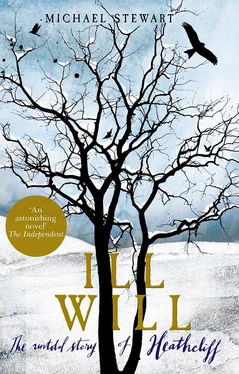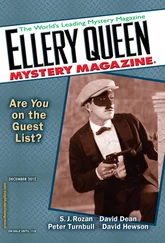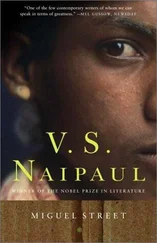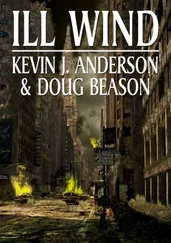The Man with the Whip

One morning towards the end of August, after I had finished my work in the stable, the farmer approached with a scythe and said he needed me to do some different work.
‘No time to stand there idle, lad. The hay needs cutting. I need to gather as many hands together in yonder hayfield.’
He handed me the tool. I walked up to the hayfield where a small gathering of farm workers loitered. Men and women and children. We waited for Dan’s instructions, then we got to work. We grafted all day, me in shirtsleeves, swinging the scythe so that it cut the stalks, then catching up armfuls of moist, reeking grass, and tossing it out to the four winds. Each swathe of cut grass was shaken out with a fork, then turned and turned until it was as dry as a bone. From dawn till dusk, a file of servants and hirelings toiled in the field. Some of these hirelings were no older than bairns.
There was a girl working beside me, with very pale blonde hair and striking grey eyes. She couldn’t have been more than ten or eleven years of age and there were no signs yet of comeliness. She was dressed in a simple white frock and her feet were bare. She was surrounded by people and yet seemed all alone in that field. Like there was an invisible wall all around her. She looked at no one and spoke to no one. She grafted but never seemed to toil. When all the hay was cut, we gathered it in stacks, ready to be carted to the top barn. At the end of the day we went down into the yard and found places to sit, while the farmer’s wife served barley bread, cheese and ham, and the farmer rolled out three barrels of ale.
‘Will you partake?’ he asked the girl with the white-blonde hair, who was sitting on a bale of hay, eating her bread and cheese on her own.
‘I will not,’ she said, without looking up at the farmer.
‘Please yourself,’ the farmer said and went to the next worker.
This made me smile. I went over to her and sat at the end of the bale.
‘Not a disciple of ale then, are we?’
‘I don’t mind.’
‘And you’ve no thirst on after all that work?’
She didn’t react or even look at me.
‘I know where there’s a stream nearabouts. And I know where there’s a well.’
She grunted and stuffed a chunk of barley bread into her mouth.
‘I’m William Lee,’ I said.
She nodded without looking up and without offering me her name. This also made me smile. I tried to engage her in conversation but she was having none of it, and when I’d finished my scran I got up and shuck the hay from my breeches.
‘Well, nice to meet you,’ I said. ‘Even though you’ve not much to say for yourself.’
She just nodded.
Young in years but old in temper, I thought and chuckled inwardly. I took myself to my den, where I read some more from the book. I read about the righteous Job, of which I’d heard many times from Joseph. He was fond of quoting from the book and fancied himself as a bit of a Job figure. The Lord hath given and the Lord hath taken away. He called it the grandest thing ever written. But reading it for myself was a very different experience. I saw Job and God in a different light. I despised Job’s piety, and God’s malevolence. I saw in God a Hindley-like tyrant. God killed Job’s children and he didn’t even have the guts to do it himself. Instead, he got Satan to do it. At least Hindley had the balls to kick me in the face with his own boot.
The next day, while mowing with my scythe, I saw Dick, the farmer’s son, in the field yonder. I had little to do with him, but even so, I had picked up that there was something wayward about him. Sticks had been right about that. I’d had one altercation with him a few days ago, when he had accused me of taking tobacco from his tin. When I pointed out that I didn’t smoke, he had just laughed and said that I could have taken the tobacco to sell to another man.
‘There’s money in shag, we all know that.’ I merely shrugged. But he had squared up to me and said, ‘I don’t like you, William Lee. I don’t like the way you carry off. Every gypsy I’ve ever known has been a liar and a thief.’
I stared into his black eyes but there was no life there.
I’d felt the heat of anger rise in my belly, but Sticks had been standing nearby and had signalled for me to leave it. I’d kept my mouth shut and wandered up to my den. Sticks was right. It wasn’t worth losing my work or my head over. I would just add him to my list. Beneath you and Hindley.
Now here was this Dick fellow, making his way to where we were cutting hay. There was a file of us, grafting. It was late on, and although she’d kept up until now, the girl with the white-blonde hair had got behind. I saw Dick approach her.
‘You need to keep up,’ he said, ‘no place here for stragglers,’ and he pushed her.
‘I’m going as fast as I can,’ she said.
‘Well, it isn’t fast enough,’ he said and pushed her harder. She fell over. Dick laughed.
She stood up and brushed herself off, then she said something to him that I couldn’t make out. We’d all ceased working now and were watching this. Dick stopped laughing and his face went pale. The bones of his skull seemed to protrude more prominently. He was going to say something but seeing he had an audience, he marched off. As he walked past me, I heard him mutter under his breath, ‘I’ll teach her to curse.’ But there was no more incident after that and we worked on throughout the afternoon.
Some of the workers sang songs to pass the time. Saucy and bawdy numbers in the main. Songs about drunken monks and tragic sisters, cruel brothers and comely shepherds’ daughters. I listened to a song about a farmer who, in paying off a compact with the devil, tries to rid himself of a shrewish wife. The man offers his wife gladly. But the woman proves too much for Old Nick and he returns her to the farmer. There was another song about a young woman who gives up her true love for a wealthy landowner. She marries the landowner, who she doesn’t love, and lives an unhappy life. The man she really loves goes off to make his fortune, but perishes in the wilderness. At last the girl realises she needs to be with her sweetheart and she goes off to find him. Instead she finds his corpse. I wondered when you would come to your senses, Cathy, and realise what a fool you’d been.
Although many of these songs were known to the other workers and through repetition of their verses became known to me, I did not join in. I had a voice that was hardly made for talking let alone singing. But listening to them made the work more bearable and I was thankful for them. Afterwards we downed tools and scoffed supper. I took hold of a flask of water and tucked it inside my coat, saving it for later. It was the end of the seventh week and I now had three pounds and ten shillings saved. I was almost there and was thinking about my departure and how this flask would come in useful for the journey. Just one more week, I said to myself. I would make my way west. To Manchester town.
When the pipes and cards came out, I took my leave. I walked across the fields towards the wooded area where my bag of pennies was hidden. I groped in the hollow until I retrieved it. I took out the pennies from that evening’s sale and put them with the others. I counted up the new total. Three pound and eleven shillings. In fact, I could be on the road in just five more days. I’d been spending quite a lot of time there of an evening, listening to the evensong of titmouse, finch and warbler, catching sight of an owl from time to time, either at its plucking place or roosting in the trees. I was struck by its eyes, which were made of the same cold grey glass as those of the girl with the pale blonde hair. The haymaking was nearly over. Just the top field now left to reap. The farmer had talked of further work, bringing in the harvest, but I had almost saved up my pennies now and was nearly ready for the road. The big town beckoned.
Читать дальше













